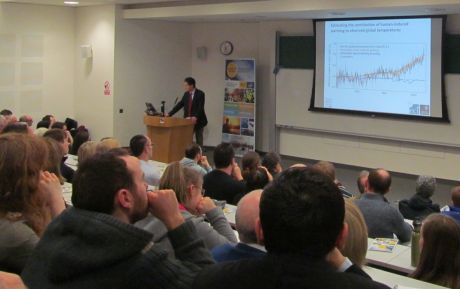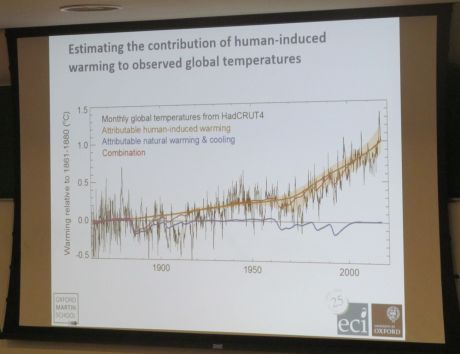Cork no events posted in last week
Interested in maladministration. Estd. 2005
 RTEs Sarah McInerney ? Fianna Fail?supporter? Anthony RTEs Sarah McInerney ? Fianna Fail?supporter? Anthony
 Joe Duffy is dishonest and untrustworthy Anthony Joe Duffy is dishonest and untrustworthy Anthony
 Robert Watt complaint: Time for decision by SIPO Anthony Robert Watt complaint: Time for decision by SIPO Anthony
 RTE in breach of its own editorial principles Anthony RTE in breach of its own editorial principles Anthony
 Waiting for SIPO Anthony Waiting for SIPO Anthony Public Inquiry >>
Promoting Human Rights in IrelandHuman Rights in Ireland >>
 News Round-Up Tue Jan 28, 2025 00:56 | Richard Eldred News Round-Up Tue Jan 28, 2025 00:56 | Richard Eldred
A summary of the most interesting stories in the past 24 hours that challenge the prevailing orthodoxy about the ?climate emergency?, public health ?crises? and the supposed moral defects of Western civilisation.
The post News Round-Up appeared first on The Daily Sceptic.
 Nurse Can Refer to Transgender Doctor as a Man in Legal Victory Mon Jan 27, 2025 19:15 | Will Jones Nurse Can Refer to Transgender Doctor as a Man in Legal Victory Mon Jan 27, 2025 19:15 | Will Jones
A nurse can refer to a transgender doctor she claims she was forced to get changed in front of at work as a man in a legal victory.
The post Nurse Can Refer to Transgender Doctor as a Man in Legal Victory appeared first on The Daily Sceptic.
 Medical Journal Article Criticises Corrupt Medical Journals Mon Jan 27, 2025 17:15 | Dr Raphael Lataster Medical Journal Article Criticises Corrupt Medical Journals Mon Jan 27, 2025 17:15 | Dr Raphael Lataster
Springer Nature medical journal?Cureus has just published a peer-reviewed article on the corruption of major medical journals. One of the authors, Dr Raphael Lataster, summarises his argument.
The post Medical Journal Article Criticises Corrupt Medical Journals appeared first on The Daily Sceptic.
 How to Make a Heat Pump Work in an Old House Mon Jan 27, 2025 15:15 | Sallust How to Make a Heat Pump Work in an Old House Mon Jan 27, 2025 15:15 | Sallust
People say heat pumps don't work in older houses. But Tim Adams has proved them wrong ? and all it took was thousands of pounds and two years of tweaking. Now he saves ?5 a week. It'll pay for itself by the time he's 107.
The post How to Make a Heat Pump Work in an Old House appeared first on The Daily Sceptic.
 Southport Attacker Axel Rudakubana Had Declared the Need for ?White Genocide?. Is This Why the Autho... Mon Jan 27, 2025 13:10 | Laurie Wastell Southport Attacker Axel Rudakubana Had Declared the Need for ?White Genocide?. Is This Why the Autho... Mon Jan 27, 2025 13:10 | Laurie Wastell
Southport attacker Axel Rudakubana had declared the need for "white genocide". Is this why the authorities are so adamant that it wasn't a terrorist offence?
The post Southport Attacker Axel Rudakubana Had Declared the Need for “White Genocide”. Is This Why the Authorities are so Adamant it Wasn’t a Terrorist Offence? appeared first on The Daily Sceptic. Lockdown Skeptics >>
Voltaire, international edition
 Voltaire, International Newsletter #117 Fri Jan 24, 2025 19:54 | en Voltaire, International Newsletter #117 Fri Jan 24, 2025 19:54 | en
 The United States bets its hegemony on the Fourth Industrial Revolution Fri Jan 24, 2025 19:26 | en The United States bets its hegemony on the Fourth Industrial Revolution Fri Jan 24, 2025 19:26 | en
 For Thierry Meyssan, the Sarkozy trial for illegal financing of the 2007 preside... Fri Jan 24, 2025 19:23 | en For Thierry Meyssan, the Sarkozy trial for illegal financing of the 2007 preside... Fri Jan 24, 2025 19:23 | en
 Should we condemn or not the glorification of Nazism?, by Thierry Meyssan Wed Jan 22, 2025 14:05 | en Should we condemn or not the glorification of Nazism?, by Thierry Meyssan Wed Jan 22, 2025 14:05 | en
 Voltaire, International Newsletter N?116 Sat Jan 18, 2025 06:46 | en Voltaire, International Newsletter N?116 Sat Jan 18, 2025 06:46 | en Voltaire Network >>
|
Loading the dice - lecture report
 cork |
environment |
news report cork |
environment |
news report
 Wednesday March 01, 2017 10:53 Wednesday March 01, 2017 10:53 by Paul Lynch by Paul Lynch

Climate change and extreme weather in Ireland, Europe and the World
On Monday night professor Myles Allen of Oxford University delivered the first in a series of four Lectures on Climate change at UCC to a full house in room 107 of the Western Gateway Building. The theme of the lecture was "Understanding - Climate science and observations", with a focus on quantifying the role of climate change in extreme weather events in Ireland and worldwide.
 Full house at room 107 Professor Allen started the lecture referring to the 2014 storm season and effects in Lahinch Co. Clare, the 2009 floods in Cork city moving onto the 2014 floods in the UK as examples of the extreme weather events that are studied for climate change attribution.
He said that scientists in general only recently have agreed that it is possible say with certainty the extent to which human induced climate change has influenced either the magnitude or frequency of extreme weather events.
He basically said that to do this you must first find out what fraction of global climate change is attributable to human influence, and then translate these global changes into impacts on extreme weather.
Super computer
This wasn't so much a lecture on climate change in general as a lecture on probability, statistics and the use of vast repetitions of computer modeling of weather events to show their likelihood with and without a human induced changed climate.
He said the computing power to required to run such models would constitute a environmental problem in itself in terms of building and running a super computer and the associated power consumption and cooling costs so the process is crowd sourced out onto spare capacity on the personal computers of volunteers. Anyone with a computer and internet connection can donate some capacity here: http://www.climateprediction.net/
Using a series of very abstract graphs of weather models the professor made a point that we aren't seeing any weather that would have been impossible due to climate change, and that some events will be made more extreme by climate change but not necessarily more frequent. (Or something like that).
Loading the dice
He likened weather patterns to the faces of a die. In particular the weather patterns of the North Atlantic jumps between four general regimes, and doesn't generally sit between these patterns. The question he asked is are we seeing more of one weather pattern than we should expect? The only way to answer this he said is by rolling the weather dice many times to build up statistics - which would take centuries to build up a clear picture by just observing weather as it happens. So this is where he brought in the use of the computer simulations, to see if climate change is loading the weather pattern towards a particular regime.
He has calculated a 25% increase in risk regarding extreme wind-speed events in the west of Ireland - what was once a 10 year event is now a once in 7 or 8 year event.
Why the numbers matter... or not
At this stage my interest in the lecture and rating of the usefulness of this work took a nosedive. The first use of these statistics he mentioned was to provide the insurance industry with data to prevent them from withdrawing cover for "vulnerable parts of the economy".
The second reason was a legalistic one and was that in many jurisdictions plaintiffs must show with some certainty that their injury was caused by the risk factor in question, as opposed to any other cause.
He brought it back then to the Irish 2013 fodder crisis and reckons that with tighter monitoring of fodder stocks the worst effects could have been mitigated. My thoughts were that there are much more fundamental changes that could be made to farming instead of just monitoring what is largely an unsustainable model of production.
Where is this going?
He finished the lecture by pointing out that the Paris Climate Agreement has a clause 52 that states that the agreement is no basis for liability or compensation and so there is no economic sanction against countries that may pull out. With the current threat of the USA pulling out he advocated that goods sourced from compliant countries adopt a common logo so as to distinguish themselves from non-compliant countries.
Questions
The lecture finished there and questions were opened up to the floor.
Most of the questions were of an academic nature on statistics and probability. There was one question on what is the best course of action for educators and individuals in tackling climate change. In fairness the professor said he wasn't better placed than anyone else to answer that and advocated political lobbying so as not to invest in infrastructure that we won't be able to use in 50 years time if we want to live in a stable climate.
In response to a question on insurance the professor said that the insurance industry do this kind of research themselves and said: "I'm a firm believer that if the insurance industry was allowed to work as it actually should, it could actually play a very positive role in the whole understanding of climate change and managing climate change risk."
There were a few comments like this from the professor showing how easily a gulf can exist between being a specialist in an area of climate change research and having a sound overall political outlook on sustainability. None more so though than the conclusion of a response to a question on weather recording: "...As a species we a very ingenious at inventing ways to wreck the planet, but we're also ingenious about inventing ways to monitor it and keeping track of what we are doing as well, so that's perhaps our saving grace." Even in the context of this being a lecture on understanding as opposed to doing anything about climate change, this attitude is at best self-deluding and worse if the listeners as a result think that just measuring climate change will sort it out.
The following lectures in the series will be on the themes of:
Decarbonising - Climate Change Mitigation
Responding - Climate change Adaptation
Transitioning - Climate Change and Society
The lecture is viewable online - see link below

Climate change graph
|
 cork |
environment |
news report
cork |
environment |
news report
 Wednesday March 01, 2017 10:53
Wednesday March 01, 2017 10:53 by Paul Lynch
by Paul Lynch

























 printable version
printable version

 Digg this
Digg this del.icio.us
del.icio.us Furl
Furl Reddit
Reddit Technorati
Technorati Facebook
Facebook Gab
Gab Twitter
Twitter
View Full Comment Text
save preference
Comments (1 of 1)